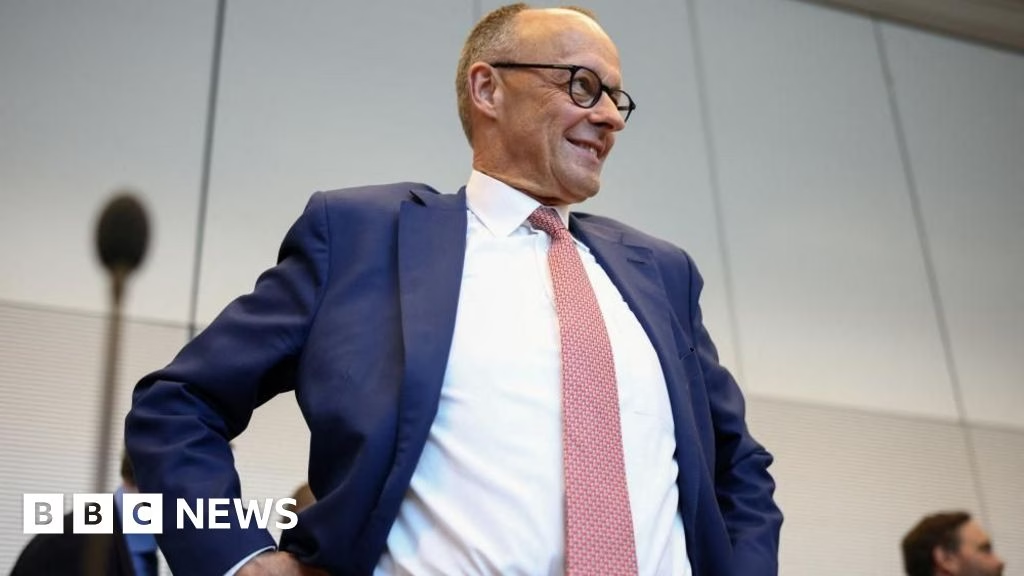Germany’s parliament is planning to choose Friedrich Merz from the conservative party as the next Chancellor. The 69-year-old is aiming to improve the country’s struggling economy and increase its global influence. This decision ends Germany’s recent political instability after the last government resigned. However, Merz will take office during a time of great uncertainty worldwide and rising support for the far-right at home.
In his statement on Monday, the CDU leader emphasized the importance of making this government successful. His supporters believe that good governance can address growing discontent among voters. Mark Helfrich, a CDU member of the Bundestag, said that the party aims to solve problems in a responsible, visible, and detailed way.
However, the CDU, CSU, and SPD coalition only have a narrow majority of 328 seats, which is just twelve more than the minimum required. In the February federal election, the CDU/CSU party received only a slight increase in support, while the SPD faced its worst post-war outcome. Merz has committed to tightening immigration rules, investing in infrastructure, and strengthening ties with key European partners.
Despite these plans, support for governing parties remains relatively low, meaning Merz must convince a wider audience of the necessity to spend more on defense. The far-right Alternative für Deutschland (AfD) will challenge Merz throughout this parliament, as they have become the main opposition force in the Bundestag. The AfD’s policies include closing borders, deporting migrants, and re-opening ties with Russia.
The AfD has been officially classified as an extremist organization by domestic intelligence, sparking discussions about whether the party should be banned. The US administration, including VP JD Vance, has criticized this decision.
Managing the relationship with President Trump’s administration will be another balancing act for Merz, an Atlanticist who suggested Europe should become independent from the USA. Despite this, Merz’s government will prioritize maintaining the transatlantic relationship. Merz is set to visit Paris and Warsaw first during his time in office to improve strained relations that existed under Olaf Scholz’s leadership.
Agnieszka Pomaska, a member of the Polish Sejm and Civic Platform party, believes that Germany and Poland should invest together in defense and the army. She criticizes Scholz’s “politically weak” government, saying it wasn’t easy to work with them.
Source: https://www.bbc.com/news/articles/c0m9dpz4e7po







